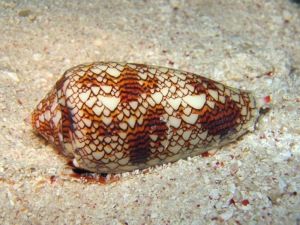Unsafe sex in Denmark causes 160 deaths, 7,186 hospitalisations and 100,000 hospital visits a year, according to a report in today’s Metroxpress based on figures from Sundhedsstyrelsen, the national board of health. Cervical cancer is the biggest killer, followed by HIV/AIDS. The majority of the victims are women. Two types of HPV are responsible for 70 percent of all cases of cervical cancer, according to Sundhedsstyrelsen, and around 80 percent of sexually-active women will at some point be infected by a STD virus. Unsafe sex ranks just behind traffic accidents, which kill 167 people a year.
New doc accused authority of shielding epidemic
A new DR documentary, ‘Den dag penicillinen ikke virker’ (‘The day penicillin does not work’), which is screening on Sunday on DR1 at 20:00, will reveal how crucial information regarding the increasing resistance of the MRSA CC398 bacteria at the country’s pig farms was withheld from Danish politicians between 2008 and 2014 by the national food authority, Fødevarestyrelsen. An estimated 12,000 Danes have been infected by the virus – up from zero cases in 2006. MRSA CC398 can cause blood infections and even death.
Cancer med prices are irresponsible, says society
Kræftens Bekæmpelse, the country’s cancer society, is teaming up with its counterparts in countries including France, Finland and the Netherlands to form a taskforce to address the ever-rising prices of cancer medication. Jes Søgaar, the head of Kræftens Bekæmpelse, told DR that the action was vital, as was Danish patients’ continued access to the meds. “The high prices strain budgets,” he said. “But enough is enough. The pharmaceutical industry is acting irresponsibly. Just 15 years ago you could reach an agreement on fair pricing, but since then the pharmaceutical industry has become unreasonable.” According to US studies, cancer drug prices have increased 100-fold in the last 35-40 years.
University involved in insulin breakthrough
A team of researchers based in Australia, Denmark and the US have made a discovery that holds significant potential for aiding the development of new types of insulin to treat diabetes. Helena Safavi-Hemami from the University of Copenhagen played a significant role in the study that established that an unusual insulin molecule produced by venomous marine snails (cone snails) is very fast acting (i.e it makes blood sugar levels drop fast). Through biochemical and structural studies of this insulin, they also found a plausible explanation of why the molecule is fast acting. Their findings will be published in full as the cover story of the prestigious scientific journal Nature Structural & Molecular Biology.













